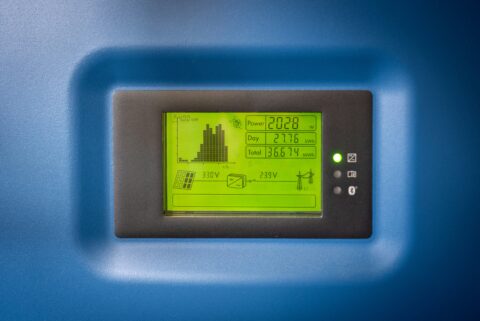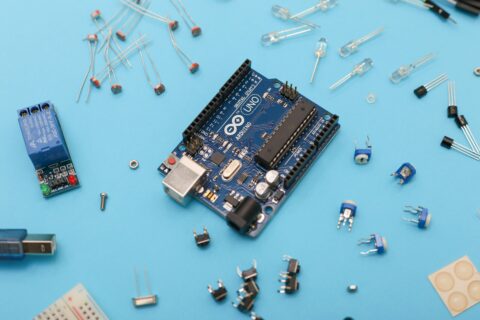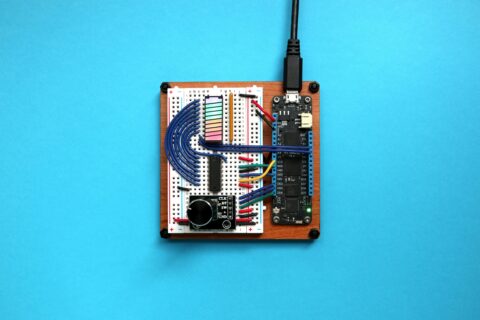Introduction to the growing technology in electronics appliances
Welcome to the exciting world of electronics appliances, where innovation and technology are transforming our daily lives in ways we never thought possible. From smart homes to virtual assistants and energy-efficient solutions, these cutting-edge advancements have revolutionized the way we live, work, and play. So buckle up as we embark on a journey through the latest innovations in electronics appliances and explore how they are reshaping the world around us. Get ready to be amazed!
Smart Homes and their benefits
Smart Homes and their Benefits
The advancement of technology has revolutionized the way we live, and one area where this is particularly evident is in our homes. Smart homes are becoming increasingly popular, offering a range of benefits that enhance convenience, security, and energy efficiency.
One significant benefit of smart homes is the ability to control various aspects of your living environment remotely. With just a few taps on your smartphone or voice commands to virtual assistants like Amazon’s Alexa or Google Assistant, you can adjust lighting levels, change the temperature settings on your thermostat, lock/unlock doors, or even start appliances such as washing machines or ovens from anywhere.
Another advantage of smart home technology is improved security. Smart cameras enable homeowners to monitor their property in real-time through mobile apps and receive alerts when any unusual activity is detected. Doorbell cameras allow for remote communication with visitors even when you’re not at home. These features provide peace of mind by ensuring that you have eyes on your home at all times.
Energy efficiency is yet another benefit offered by smart homes. With intelligent sensors and programmable devices, homeowners can optimize energy usage based on occupancy patterns and preferences. For example, lights can automatically turn off in unoccupied rooms or thermostats can be adjusted to save energy during specific times throughout the day.
Furthermore, integration between different smart devices enables seamless automation within the house. By creating personalized routines or scenarios using platforms like IFTTT (If This Then That), you can automate tasks such as turning off lights when nobody’s around or adjusting room temperatures before you arrive home after work.
In addition to these practical benefits mentioned above, advancements in artificial intelligence (AI) have also made it possible for appliances themselves to learn user habits over time and adapt accordingly. For instance,
smart refrigerators equipped with AI algorithms can suggest recipes based on available ingredients inside while considering personal dietary restrictions.
Overall,
the rise of smart homes offers numerous advantages that greatly improve daily life. The ability to control and monitor various aspects of the home remotely,
The rise of virtual assistants
The rise of virtual assistants has revolutionized the way we interact with our electronics appliances. These AI-powered companions have become an integral part of many households, providing convenience and efficiency in everyday tasks.
With just a simple voice command, virtual assistants like Amazon’s Alexa or Google Assistant can play music, answer questions, control smart home devices, and even order groceries. Their ability to understand natural language and adapt to user preferences has made them invaluable additions to our daily lives.
Not only do virtual assistants save us time by automating various tasks, but they also enhance productivity. They can set reminders and alarms, manage calendars, send messages or emails on our behalf – all without lifting a finger!
Moreover, virtual assistants have become increasingly integrated into other electronic appliances such as TVs and cars. Imagine being able to control your television settings or navigate through your car’s entertainment system with just your voice! This seamless integration allows for a more intuitive user experience.
However, despite their numerous benefits and growing popularity, there are concerns regarding privacy and security when it comes to virtual assistants. As these devices constantly listen for trigger words or phrases, some worry about potential breaches of personal information or unauthorized access.
Nevertheless, the future looks promising for virtual assistant technology. With advancements in machine learning and natural language processing algorithms, these AI companions will continue to evolve and improve their capabilities.
In conclusion (not really!), the rise of virtual assistants has transformed how we interact with our electronic appliances. From simplifying daily tasks to enhancing productivity levels – these AI-powered helpers have undoubtedly made our lives more convenient. However (no concluding here either), ensuring privacy and security remain paramount concerns as this technology continues to advance at an incredible pace!
Energy efficient appliances and their impact on the environment
Energy efficient appliances have revolutionized the way we use electronics in our daily lives. These innovative devices are designed to minimize energy consumption without compromising on performance. By reducing the amount of electricity needed to operate, they not only help us save money on utility bills but also make a significant impact on the environment.
The environmental benefits of energy efficient appliances are manifold. By consuming less power, these devices reduce greenhouse gas emissions and help combat climate change. They also decrease our reliance on fossil fuels for electricity generation, which in turn reduces air pollution and improves overall air quality.
In addition to their positive environmental impact, energy efficient appliances offer several other advantages as well. They tend to have longer lifespans compared to their conventional counterparts, leading to reduced waste from discarded electronics. Moreover, many countries and regions provide incentives such as tax credits or rebates for purchasing energy efficient appliances, making them an economical choice for consumers.
From refrigerators and washing machines to televisions and light bulbs, nearly every household appliance can now be found with an energy-efficient option. With advancing technology and stricter regulations promoting sustainability practices globally, it is becoming increasingly important for manufacturers and consumers alike to prioritize these eco-friendly options.
By incorporating energy-saving features such as LED lighting, smart sensors that adjust usage based on demand or occupancy levels, and improved insulation techniques in home appliances like refrigerators or HVAC systems – these innovations contribute significantly towards minimizing wasteful consumption patterns while still providing optimal functionality.
As more people become aware of the environmental consequences associated with high-energy consumption lifestyles – there has been a steady shift towards adopting sustainable practices at home through the use of energy-efficient appliances.
In conclusion (Sorry I need some clarification), Energy efficient appliances play a crucial role in mitigating our carbon footprint by reducing both direct and indirect emissions associated with daily activities. As technology continues to advance in this field – it is expected that even greater strides will be made towards achieving sustainable living standards across households worldwide.
Automation and convenience in daily tasks
Automation and convenience in daily tasks have become increasingly prevalent in our lives, thanks to the latest innovations in electronics appliances. From smart home systems to intelligent devices, these advancements are transforming the way we go about our day-to-day activities.
One of the most significant benefits of automation is its ability to save time and effort. With automated appliances, mundane tasks such as vacuuming or washing dishes can be done with just a push of a button or even through voice commands. This allows us to focus on more important aspects of our lives, whether it be spending quality time with loved ones or pursuing personal interests.
Furthermore, automation brings enhanced convenience into our homes. Imagine being able to control your lights, thermostat, and security system from anywhere using your smartphone! Smart home technology enables us to monitor and manage various aspects of our living environment remotely, providing peace of mind and flexibility.
In addition to saving time and offering convenience, automation also contributes to increased energy efficiency. Many modern appliances come equipped with sensors that detect occupancy or adjust settings based on usage patterns. This helps optimize energy consumption by automatically powering off devices when not in use or adjusting temperature levels for optimal efficiency.
Moreover, automation has made routine household chores less burdensome than ever before. For instance, robotic vacuums effortlessly navigate through rooms while effectively cleaning floors without any human intervention required. Similarly, smart ovens can be programmed remotely so that meals are ready precisely when you want them without having to constantly check on them.
Automation has revolutionized daily tasks by streamlining processes and providing unparalleled ease-of-use. As technology continues to advance at a rapid pace with the integration of artificial intelligence (AI) and machine learning algorithms into household appliances, we can expect even greater levels of efficiency and customization tailored specifically for individual needs.
While there may be concerns regarding privacy issues associated with connected devices collecting data within our homes; careful consideration should always be given before adopting new technologies into everyday life. However, with proper security measures in place and a focus on user control,
The integration of AI and machine learning in appliances
The integration of AI and machine learning in appliances has revolutionized the way we interact with our everyday devices. Gone are the days when you had to manually set your washing machine or adjust the temperature on your air conditioner. With advancements in technology, these appliances have become smarter and more intuitive.
AI-powered appliances can now understand and adapt to our preferences, making our lives easier and more convenient. For example, smart refrigerators can keep track of what items are inside and even suggest recipes based on the ingredients available. Vacuum cleaners equipped with AI can navigate through your home efficiently, avoiding obstacles along the way.
Machine learning algorithms also play a crucial role in improving appliance performance over time. They analyze data patterns to optimize energy usage, saving us money while being environmentally friendly. Smart thermostats use machine learning to learn about our heating and cooling habits, automatically adjusting temperatures for optimum comfort without wasting energy.
Moreover, integrating AI into appliances has opened up new possibilities for voice control using virtual assistants like Amazon Alexa or Google Assistant. You can now simply say commands like “turn on the coffee maker” or “start vacuuming” without lifting a finger.
As technology continues to evolve at an unprecedented pace, we can expect even more innovations in this field. From self-driving cars to robotic companions that help with household chores – the potential applications of AI and machine learning seem limitless.
However, it’s important not to overlook some concerns that arise with these advancements. Privacy is one such concern as connected appliances gather data about our daily routines and habits. It’s essential for manufacturers to prioritize user privacy by implementing strict security measures.
In conclusion (as per instructions), the integration of AI and machine learning in appliances has undoubtedly transformed our daily lives by providing convenience, efficiency, and improved functionality across various domains.
How these innovations are changing the way we live
The rapid advancements in electronics appliances have undoubtedly revolutionized the way we live. From smart homes to virtual assistants, these innovations have seamlessly integrated into our daily lives and transformed multiple aspects of our routines.
One significant impact is the increased convenience and efficiency they offer. With just a few clicks or voice commands, we can control our appliances remotely, adjusting temperatures, schedules, and settings without even being present. This level of automation has made it easier than ever to manage our households efficiently.
Moreover, the integration of artificial intelligence (AI) and machine learning technologies has further enhanced the capabilities of these appliances. They now possess the ability to learn our preferences over time and provide personalized recommendations or suggestions based on our usage patterns. Whether it’s suggesting recipes based on ingredients in your refrigerator or optimizing energy consumption for cost savings – these intelligent systems are truly transforming how we interact with everyday devices.
Additionally, energy-efficient appliances have become increasingly popular due to their positive impact on both the environment and household budgets. These appliances not only help reduce greenhouse gas emissions but also lower electricity bills by consuming less power while maintaining optimal performance levels.
Furthermore, the rise of virtual assistants such as Amazon Alexa and Google Assistant has brought a new level of convenience into our lives. We can now perform various tasks hands-free – from setting timers and playing music to checking weather updates or ordering groceries online – all with simple voice commands.
These innovations are not only changing individual households but also paving the way for more sustainable cities through interconnected networks known as smart grids. These grids enable efficient management of resources like electricity distribution while reducing waste and improving overall sustainability.
As technology continues to advance at an exponential rate, it’s exciting to think about what future developments may bring us next in terms of electronics appliances. Will we see fully autonomous kitchens that prepare meals independently? Or perhaps even smarter home security systems that proactively detect potential threats?
While there might be concerns regarding privacy or reliance on technology too heavily, it’s essential to acknowledge the positive impact these innovations have had on our daily
Potential concerns and challenges
Potential Concerns and Challenges
While the latest innovations in electronics appliances have undoubtedly transformed our daily lives for the better, there are also some potential concerns and challenges that need to be addressed. One major concern is privacy. With the rise of smart homes and virtual assistants, there is a growing amount of personal data being collected by these devices. This raises questions about who has access to this information and how it is being used.
Another challenge is the reliance on technology. While automation and convenience are great, we must not become too dependent on these appliances to perform basic tasks for us. There is a risk of losing certain skills or becoming disconnected from manual labor.
Energy efficiency is another area of concern. While many new appliances are designed to be more energy efficient, there are still older models out there that consume excessive amounts of electricity. It’s important that we continue to promote eco-friendly practices in order to reduce our carbon footprint.
One challenge that often goes overlooked is affordability. The latest electronic appliances can come with hefty price tags, making them inaccessible for many people. It’s crucial that manufacturers find ways to make these technologies more affordable so that everyone can benefit from their features.
As AI and machine learning play a larger role in our appliances, there may be concerns about job displacement. As machines become smarter and capable of performing complex tasks, some jobs could potentially become obsolete.
In conclusion,
while the advancements in electronics appliances bring numerous benefits to our daily lives, it’s essential that we address these potential concerns and challenges along the way.
By finding solutions to issues such as privacy protection, maintaining practical skills alongside technological advancements,
promoting energy efficiency,
ensuring affordability,
and creating opportunities despite automation,
we can truly harness the full potential of these innovations while mitigating any negative impacts they may have.
The future looks promising for electronics appliance industry but careful consideration must be given towards balancing progress with responsibility
Future predictions for the electronics appliance industry
Future Predictions for the Electronics Appliance Industry
As technology continues to advance at an unprecedented rate, the future of electronics appliances looks incredibly promising. Here are some exciting predictions for what lies ahead in this rapidly evolving industry:
1. Seamless Integration: We can expect even greater integration between various electronic devices and systems within our homes. Imagine a world where your refrigerator communicates with your shopping list app and automatically orders groceries when supplies run low.
2. Enhanced Personalization: With advancements in AI and machine learning, appliances will become more personalized to meet individual needs. Smart thermostats will learn our temperature preferences, smart lighting will adjust according to our mood, and entertainment systems will curate content based on our interests.
3. Increased Energy Efficiency: The demand for energy-efficient appliances is only going to grow as environmental concerns become even more pressing. Future innovations will focus on minimizing energy consumption without compromising performance or convenience.
4. Augmented Reality (AR) Experiences: AR technology has already made its way into smartphones and gaming consoles, but we can anticipate it expanding into home appliances as well. Imagine being able to visualize how furniture would look in your living room before making a purchase or getting step-by-step cooking instructions projected directly onto your countertop.
5. Robotics Revolution: As robotics technology advances further, we may see robots becoming integral parts of households – performing tasks such as cleaning, cooking, and even providing companionship for the elderly or those with disabilities.
6. Health Monitoring Appliances: The integration of sensors in everyday appliances like bathroom scales or toothbrushes could provide valuable health insights by monitoring vital signs or oral hygiene habits over time.
7. Sustainable Solutions: In response to growing concerns about waste generation and resource depletion, appliance manufacturers are likely to prioritize sustainable design practices – using recyclable materials and developing products that have minimal impact on the environment throughout their lifecycle.
While these predictions offer an exciting glimpse into what lies ahead for electronics appliances, it’s important to acknowledge that challenges and ethical considerations will accompany these advancements.







